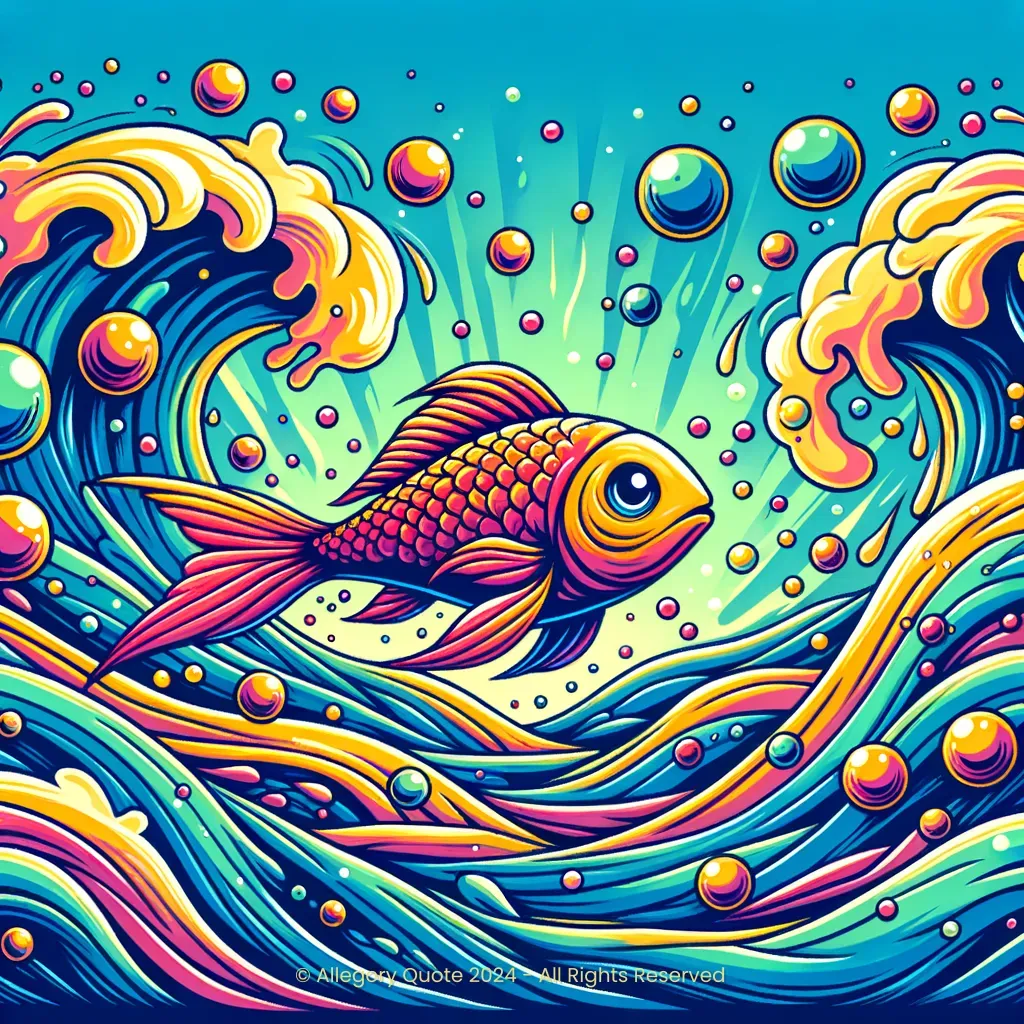Just keep swimming

0
0
0
0
- Meaning
- The meaning of the phrase centers around the idea of perseverance and resilience. Philosophically, it suggests that no matter how difficult a situation becomes, one should continue to move forward. Psychologically, it embodies an encouraging mindset that promotes coping mechanisms and the importance of maintaining hope during tough times. Historically, it emphasizes human endurance and the instinct to keep going despite challenges.
- Allegory
- The allegorical image includes a bright fish navigating through currents, symbolizing perseverance despite challenges. The surrounding bubbles represent hope and encouragement, while the vivid underwater colors evoke a sense of optimism and vitality. This reflects the essence of the phrase "Just keep swimming," illustrating that even in adversity, progress and resilience are possible.
- Applicability
- The lesson of the phrase can be applied to various aspects of personal life including academic challenges, career hurdles, or emotional struggles. Whenever one feels overwhelmed or stuck, remembering to "just keep swimming" can serve as a reminder to persistently tackle problems and seek solutions rather than succumbing to despair.
- Impact
- The phrase has had a significant impact on popular culture, inspiring countless individuals to adopt a positive mindset and persevere through challenges. It encourages people to continue striving, no matter the obstacles, and has been quoted extensively in motivational contexts.
- Historical Context
- The phrase originates from the early 2000s as part of the storytelling in Pixar's "Finding Nemo," released in 2003. It was coined in a modern context where themes of resilience and personal growth were increasingly prominent in popular media.
- Criticisms
- While the phrase is generally received positively, some might argue that it oversimplifies complex situations by suggesting that relentless persistence is the only solution. Critics may contend that sometimes it's better to pause and reassess rather than keep pushing forward.
- Variations
- Variations of this phrase can be found in different cultures, often expressing similar sentiments of perseverance. For example, in some Asian cultures, the saying "Fall seven times, stand up eight" emphasizes resilience through enduring hardships.
-

Hakuna Matata.
-

To infinity and beyond!
-

Adventure is out there!
-

Start by doing what's necessary; then do what's possible, and suddenly you are doing the impossible.
-

The bare necessities.
-

All the darkness in the world cannot extinguish the light of a single candle.
-

The past can hurt, but the way I see it, you can either run from it or learn from it.
-

A ray of sunshine is enough to sweep away many shadows.
-

You’ve got a friend in me.
-

Looks like me and Vincent caught you boys at breakfast. Sorry about that. What you having?
-

Ohana means family.
-

Now, if you’ll excuse me, I’m going to go home and have a heart attack.
No Comments